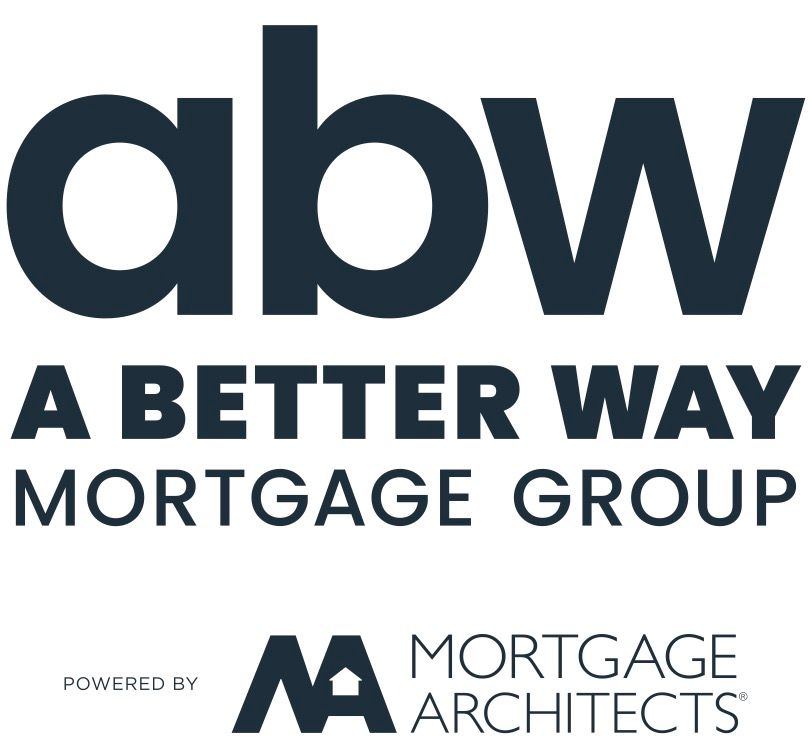A Conversation About Mortgage Pre-approvals
Susan Au-Young • January 19, 2021

Thinking of buying a property, but don't know where to start? Well... that's where a mortgage pre-approval comes in. Start here. Just like you wouldn't go into a restaurant without having enough money to buy your meal, so you shouldn't start shopping for a home without an understanding of how much you can afford. So let's have a conversation about a mortgage pre-approvals so you can get this house hunting party started.
Although a pre-approval is the best way to get started, we have to be honest about what a pre-approval is and what it's not.
Not Magic. Not Binding.
Let's start at the beginning and dissect the word pre-approval. Pre means before, in advance of, or prior to, and in this case means before the approval. A pre-approval is not an approval, let me say that again (in italics) for emphasis, a pre-approval is not the same as an approval. It's not a guarantee of financing. it's not magic, and unfortunately it's not binding. There are a number of factors that come into play after the pre-approval is in place that can derail your dreams of homeownership.
- as a mortgage approval requires a property to be scrutinized, and a pre-approval doesn't look at any property, it can't be guaranteed.
- as your employment status can change after a pre-approval, all employment documents have to be verified as part of the approval process.
- a secondary credit report can be pulled by the lender or insurer after the pre-approval is in place, if there are discrepancies, they could decide not to proceed with financing
- mortgage rules can change and sometimes come into effect with no grandfathering.
So What Good is a Pre-Approval Then...
A pre-approval is simply a formalized gathering of your ducks, and putting them in a row. It won't guarantee you will get the mortgage, but it will certainly uncover any major obstacles that might be in your way. Consider a pre-approval a pre-screening, where we take a look at your employment, credit history, and your downpayment, and figure out the maximum mortgage amount you can qualify for. We will also have a look at all the mortgage options available to you on the market, so you can decide in advance what product meets your financing needs.
Obstacles, like what? Well, the truth is, you only know what you know, said in another way, you don't know what you don't know. Did you know that they figure about 10-20% of credit reports have some kind of error on them. By taking a look at your credit report as part of the pre-approval process (instead of when you have already found the house of your dreams), you have time to fix any errors before hand. This might not sound like that big of a deal, but it could be the difference between getting financing or not.
A pre-approval usually comes with a rate-hold, this is a good thing. Rates are like gas prices, they fluctuate and go up and down from time to time. As part of taking a preliminary look at your mortgage application, lenders will typically offer a rate hold for 90-120 days on a specific mortgage term. This means that if you find a property to buy in the allotted time, even if rates have gone up in the meantime, you will get the rate that was guaranteed. What happens if rates go down, well... you get the lower rate. It's a win win.
It's a Process
Buying a home is a process, a process that has a lot of steps that come into play. A pre-approval is one of the first steps you take. A pre-approval allows you to collect all your documentation ahead of time, handle any obstacles that may come up, have a look at your mortgage options, secure a rate hold, and will give you piece of mind as to the next steps in the process. Regardless if this is your first time buying a place or your twentieth, a pre-approval is the best place to start. Even if it doesn't guarantee you will get the mortgage in the end.
So if you are thinking about buying a home, let's get started, I would love to help you secure a pre-approval. And if for some reason you are faced with some obstacles, I will help you get on track. Contact me anytime to get started!
Share
RECENT POSTS

If you’re looking to do some home renovations but don’t have all the cash up front to pay for materials and contractors, here are a few ways to use mortgage financing to bring everything together. Existing Home Owners - Mortgage Refinance Probably the most straightforward solution, if you’re an existing homeowner, would be to access home equity through a mortgage refinance. Depending on the terms of your existing mortgage, a mid-term mortgage refinance might make good financial sense; there’s even a chance of lowering your overall cost of borrowing while adding the cost of the renovations to your mortgage. As your financial situation is unique, it never hurts to have the conversation, run the numbers, and look at your options. Let’s talk! If you're not in a huge rush, it might be worth waiting until your existing term is up for renewal. This is a great time to refinance as you won’t incur a penalty to break your existing mortgage. Now, regardless of when you refinance, mid-term or at renewal, you’re able to access up to 80% of the appraised value of your home, assuming you qualify for the increased mortgage amount. Home Equity Line of Credit Instead of talking with a bank about an unsecured line of credit, if you have significant home equity, a home equity line of credit (HELOC) could be a better option for you. An unsecured line of credit usually comes with a pretty high rate. In contrast, a HELOC uses your home as collateral, allowing the lender to give you considerably more favourable terms. There are several different ways to use a HELOC, so if you’d like to talk more about what this could look like for you, connect anytime! Buying a Property - Purchase Plus Improvements If you’re looking to purchase a property that could use some work, some lenders will allow you to add extra money to your mortgage to cover the cost of renovations. This is called a purchase plus improvements. The key thing to keep in mind is that the renovations must increase the value of the property. There is a process to follow and a lot of details to go over, but we can do this together. So if you’d like to discuss using your mortgage to cover the cost of renovating your home, please connect anytime!

If you're looking to buy a new property, refinance, or renew an existing mortgage, chances are, you're considering either a fixed or variable rate mortgage. Figuring out which one is the best is entirely up to you! So here's some information to help you along the way. Firstly, let's talk about the fixed-rate mortgage as this is most common and most heavily endorsed by the banks. With a fixed-rate mortgage, your interest rate is "fixed" for a certain term, anywhere from 6 months to 10 years, with the typical term being five years. If market rates fluctuate anytime after you sign on the dotted line, your mortgage rate won't change. You're a rock; your rate is set in stone. Typically a fixed-rate mortgage has a higher rate than a variable. Alternatively, a variable rate is not set in stone; instead, it fluctuates with the market. The variable rate is a component (either plus or minus) to the prime rate. So if the prime rate (set by the government and banks) is 2.45% and the current variable rate is Prime minus .45%, your effective rate would be 2%. If three months after you sign your mortgage documents, the prime rate goes up by .25%, your rate would then move to 2.25%. Typically, variable rates come with a five-year term, although some lenders allow you to go with a shorter term. At first glance, the fixed-rate mortgage seems to be the safe bet, while the variable-rate mortgage appears to be the wild card. However, this might not be the case. Here's the problem, what this doesn't account for is the fact that a fixed-rate mortgage and a variable-rate mortgage have two very different ways of calculating the penalty should you need to break your mortgage. If you decide to break your variable rate mortgage, regardless of how much you have left on your term, you will end up owing three months interest, which works out to roughly two to two and a half payments. Easy to calculate and not that bad. With a fixed-rate mortgage, you will pay the greater of either three months interest or what is called an interest rate differential (IRD) penalty. As every lender calculates their IRD penalty differently, and that calculation is based on market fluctuations, the contract rate at the time you signed your mortgage, the discount they provided you at that time, and the remaining time left on your term, there is no way to guess what that penalty will be. However, with that said, if you end up paying an IRD, it won't be pleasant. If you've ever heard horror stories of banks charging outrageous penalties to break a mortgage, this is an interest rate differential. It's not uncommon to see penalties of 10x the amount for a fixed-rate mortgage compared to a variable-rate mortgage or up to 4.5% of the outstanding mortgage balance. So here's a simple comparison. A fixed-rate mortgage has a higher initial payment than a variable-rate mortgage but remains stable throughout your term. The penalty for breaking a fixed-rate mortgage is unpredictable and can be upwards of 4.5% of the outstanding mortgage balance. A variable-rate mortgage has a lower initial payment than a fixed-rate mortgage but fluctuates with prime throughout your term. The penalty for breaking a variable-rate mortgage is predictable at 3 months interest which equals roughly two and a half payments. The goal of any mortgage should be to pay the least amount of money back to the lender. This is called lowering your overall cost of borrowing. While a fixed-rate mortgage provides you with a more stable payment, the variable rate does a better job of accommodating when "life happens." If you’ve got questions, connect anytime. It would be a pleasure to work through the options together.



